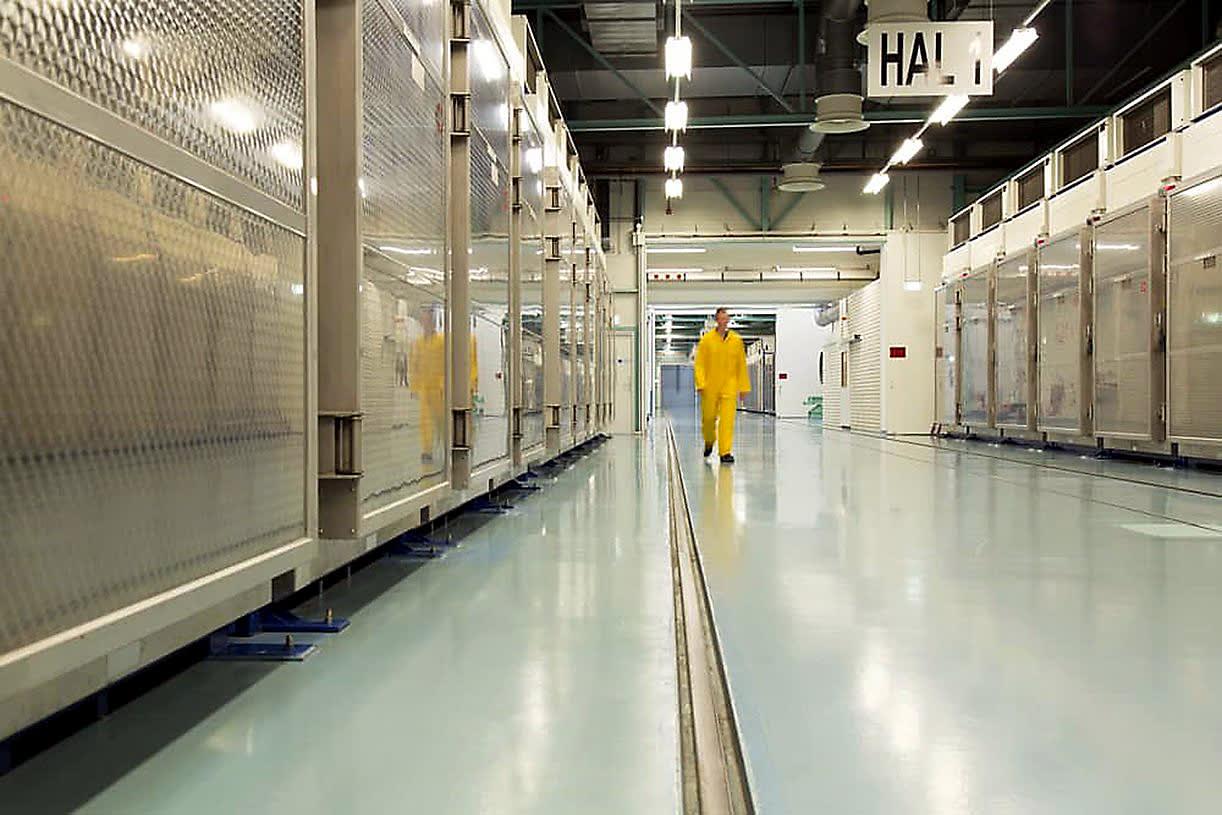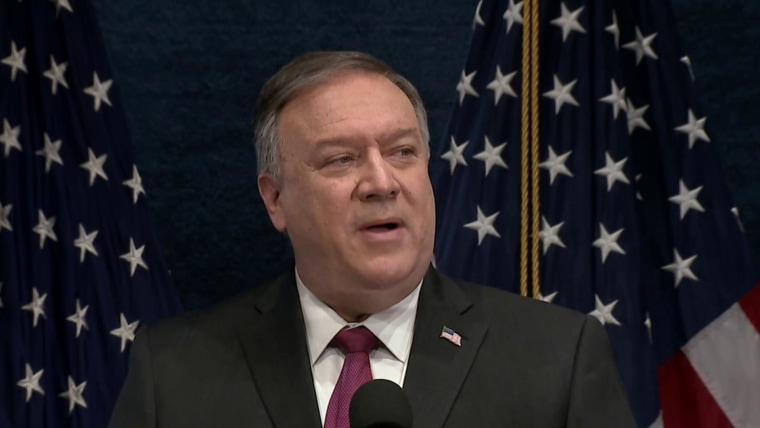Days before President-elect Joe Biden is set take office, Iran has said it plans to further reduce its compliance with the nuclear deal aimed at preventing it from getting a nuclear weapon.
The International Atomic Energy Agency (IAEA) said in a statement shared with NBC News that Iran has started modifying and installing relevant equipment to conduct research and development on the production of uranium metal. Iran informed the agency of this on Wednesday.
If sufficiently enriched, uranium metal can be used at the core of a nuclear warhead, according to nuclear experts.
Download the NBC News app for breaking news and politics
However, Iran has said the move is to help design an improved type of fuel for a research reactor, the U.N. nuclear watchdog said. Tehran has long denied seeking to develop a nuclear weapon and says doing so would be contrary to Islamic teaching.
Nevertheless, the move reduces Iran’s compliance with the beleaguered nuclear deal it made in 2015 with six world powers, including the U.S., increasing the pressure on the incoming Biden administration.
As part of the landmark deal, Iran agreed not to engage in the production of uranium metals for 15 years and to seek approval if it sought to initiate research and development on uranium metal after 10 years, among other commitments. In exchange, the world powers — France, Germany, U.K., Russia, China and the U.S. — would provide economic sanction relief.
Biden — who was vice president in the Obama administration’s, which signed the deal — has said he is willing to return to the pact if Iran abides by its terms, and has suggested building on the agreement.
However, Iran has ruled out broadening the deal to include issues like its ballistic missile program.
Tehran wants to avoid a “grand bargain” negotiation that includes issues unrelated to Iran’s nuclear program, said Clément Therme, a research fellow at Sciences Po, a political science institute in Paris.
“The more you have technical problems, issues on the nuclear file, the less the West will want to negotiate on human rights, regional policy and ballistic missiles,” he added.
Iran started reducing compliance with the nuclear deal in 2019 after President Donald Trump unilaterally withdrew America from the pact the year before and re-imposed sanctions on the Middle Eastern nation.
Last week Iran announced it had resumed enriching uranium by up to 20 percent at its Fordo site, which is buried deep inside a mountain. Under the deal, Iran agreed to only enrich uranium up to 3.67 percent.
At the same time, the Trump administration has been ratcheting up its maximum pressure campaign against Tehran in its last days in office.
On Wednesday, Secretary of State Mike Pompeo said the U.S. was imposing sanctions on two organizations controlled by Iran’s supreme leader. The U.S. also designated the former secretary general of the powerful Iran-backed Kataib Hezbollah militia in Iraq.
Source: | This article originally belongs to Nbcnews.com












